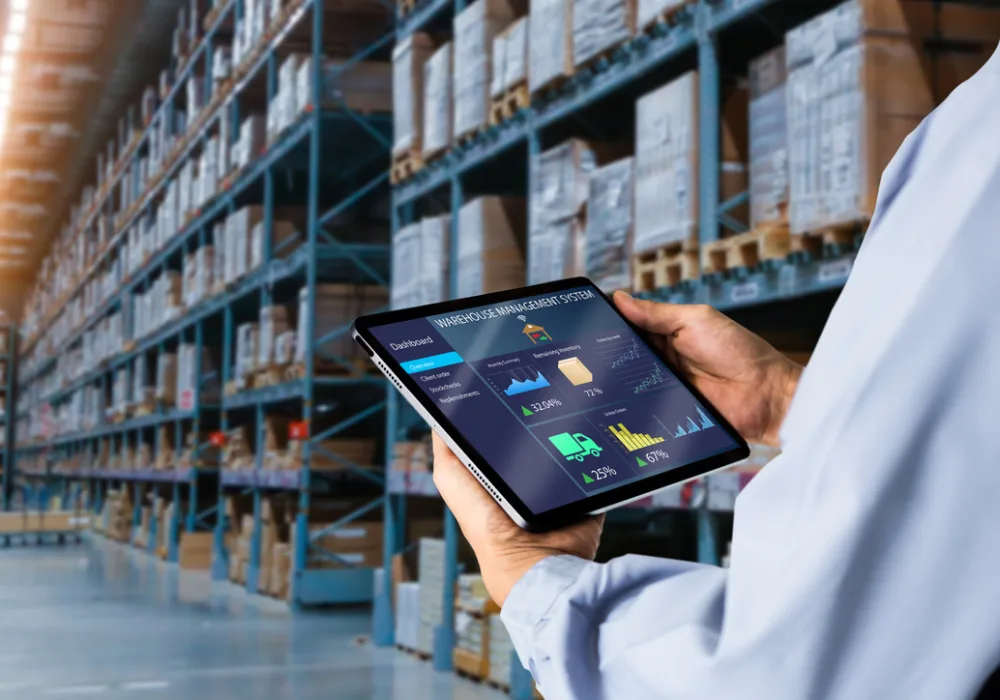Artificial Intelligence (AI) is transforming industries worldwide, and healthcare is no exception. AI is leading a significant revolution in healthcare supply chains, driving efficiency, reducing costs, and ultimately enhancing patient outcomes. By leveraging advanced algorithms, machine learning, and predictive analytics, AI optimises every aspect of the healthcare supply chain—from inventory management to logistics and distribution. This article explores the various ways AI is being applied across different areas of the healthcare supply chain, illustrating its profound impact on the industry.
Enhanced Inventory Management
Inventory management is a critical component of the healthcare supply chain, and AI is making significant strides in this area. AI-driven demand forecasting allows healthcare organisations to analyse historical data, seasonal trends, and external factors to predict future demand for medical supplies and pharmaceuticals accurately. This predictive capability optimises inventory levels, minimising the risk of stockouts and overstock situations, which can be costly and detrimental to patient care.
Furthermore, AI enables automated replenishment systems that can reorder supplies when inventory reaches a predetermined threshold. This automation ensures that essential items are always available, reducing the burden on healthcare staff and minimising the risk of human error. By maintaining optimal inventory levels and streamlining replenishment, AI enhances operational efficiency and contributes to cost savings.
Optimised Procurement and Supplier Management
AI is also revolutionising procurement processes within the healthcare supply chain. Supplier selection is a crucial aspect of procurement, and AI tools can evaluate and rank suppliers based on factors such as price, quality, delivery times, and reliability. This data-driven approach allows healthcare organisations to make informed procurement decisions, leading to better supplier relationships and cost savings.
Contract management is another area where AI is making an impact. AI systems can analyse and manage supplier contracts, ensuring compliance with agreed-upon terms and identifying opportunities for cost reduction. By automating these processes, AI reduces the risk of human error and enhances the efficiency of procurement operations.
In addition, AI-driven analytics enable healthcare organisations to monitor supplier performance over time. This ongoing evaluation helps make data-driven decisions about which suppliers to partner with, further optimising the procurement process and ensuring the timely delivery of high-quality medical supplies.
Improved Logistics and Distribution
Logistics and distribution are critical to ensuring that medical supplies reach their destinations on time and in optimal condition. AI is pivotal in optimising these processes through advanced algorithms that determine the most efficient delivery routes. By reducing transportation costs and ensuring timely deliveries, AI enhances the overall efficiency of the healthcare supply chain.
Cold chain management, essential for transporting temperature-sensitive medical products like vaccines, is another area where AI makes a difference. AI monitors and controls the temperature of these products throughout the supply chain, ensuring they are stored and transported under optimal conditions. This capability is crucial in maintaining the integrity of vaccines and other sensitive medical supplies, ultimately protecting patient health.
Furthermore, AI integration with Internet of Things (IoT) devices provides real-time location services, allowing supply chain leaders to track the location and usage of medical devices. This real-time data enables more efficient usage and replacement patterns for equipment and supplies, contributing to cost savings and improved resource management.
Conclusion
AI is undeniably transforming the healthcare supply chain, driving efficiency, reducing costs, and enhancing patient outcomes. From inventory management and procurement optimisation to logistics and distribution, AI optimises every supply chain aspect. By automating routine tasks, predicting demand, and providing real-time insights, AI ensures that healthcare providers can deliver better patient care by having the right supplies at the right time. As AI continues to evolve, its role in the healthcare supply chain will only become more integral, paving the way for a more efficient, cost-effective, and patient-centred healthcare system.
Source: DHI
Image Credit: iStock










